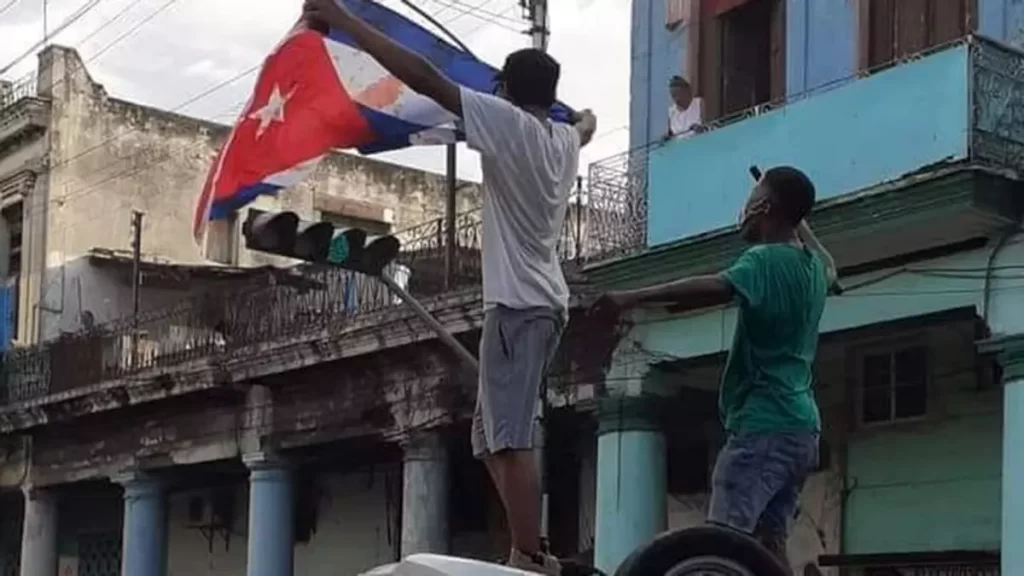
1. The Announcement of the “Thaw”
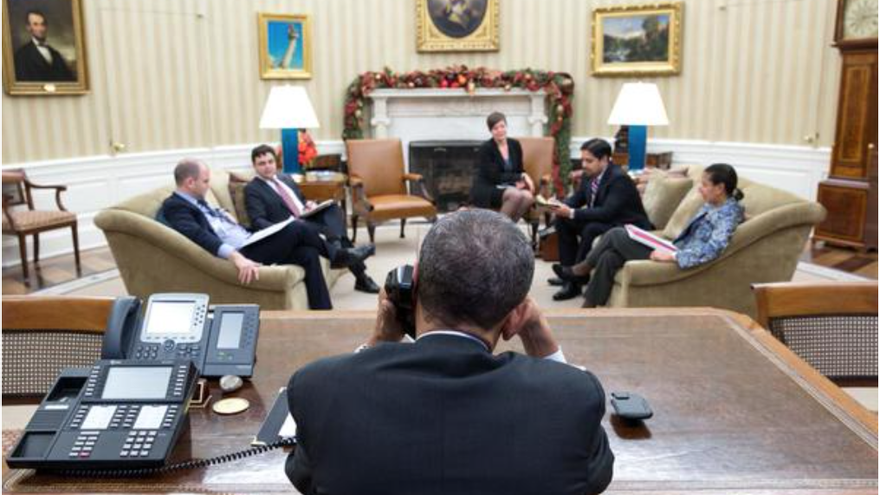
2. Reopening of Embassies
The next step to the thaw, as logical as it was historic, was the reopening of embassies in Washington and Havana. It was in the summer of 2015, under an inclement sun and in two events that brought together officials in the United States and curious people in Cuba. The Cuban flag was raised in July, in the presence of the Foreign Minister, Bruno Rodríguez, who thanked Obama for his call to Congress to eliminate the embargo laws. A month later, it was the turn of the headquarters in the capital of the Island, with the presence of Secretary of State John Kerry. 14ymedio, stationed at the entrance, also reported the event in a live-stream.
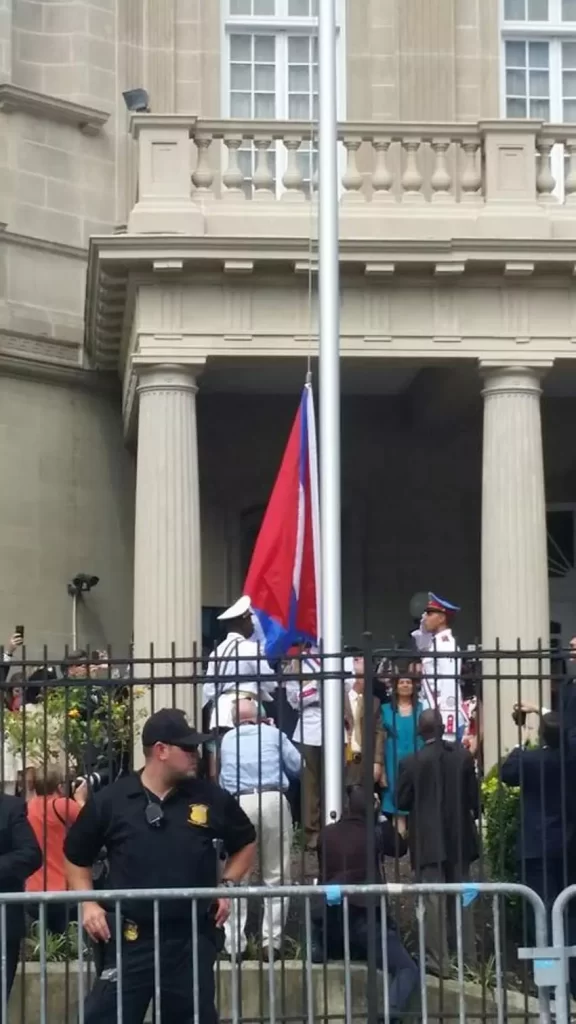
3. Obama’s Visit to Cuba
The first visit by a US president to Cuba in almost a century, in March 2016, deserved a great display: a challenge for a small newspaper like 14ymedio which, however, did not miss the event with a wide variety of pieces. We created photographic galleries with the preparations for the visit; we went out among the Havana residents, armed with their stars and stripes flags, to ask their opinions; we had expert analysis and we published — with the support of international agencies — all the information about official acts. In addition, one of our collaborators, Miriam Celaya, was among those attending the meeting of the American president with civil society. That trip left a photo for history: that of a smiling Raúl Castro raising Obama’s reluctant arm.
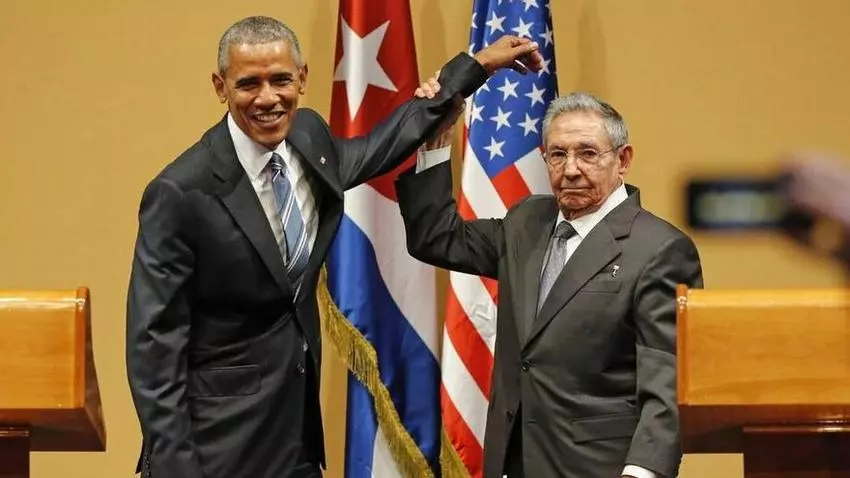
4. The Massive Rolling Stones Concert
The most powerful Western leader in the world had barely left when their satanic majesties took over. The Rolling Stones concert in Havana, on March 25, 2016, brought together almost 1.2 million attendees if we add the 700,000 who got into the area set up in the Ciudad Deportiva and another 500,000 who watched it from the outskirts. There was a thirst for a group banned by the Revolution and the band delivered from the first “good night, my people from Cuba” pronounced by Mick Jagger who, as always, gave his all during the two-hour performance. There is even a film about the event, Havana Moon.
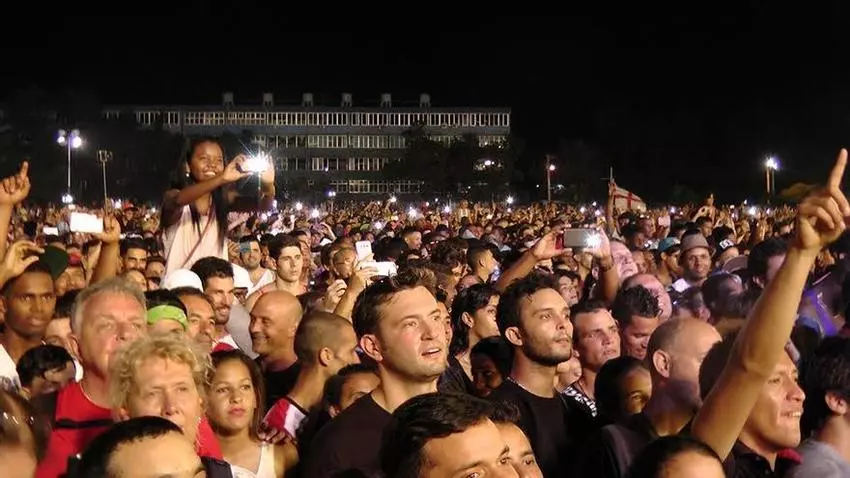
5. The Death of Fidel Castro
The night of November 25, 2016 in Havana, early morning in Madrid. The two newsrooms of 14ymedio coordinate to provide uninterrupted follow-up to one of the most anticipated news stories, for different reasons, in the entire world. This newspaper opted for a headline that was as simple as it was direct and forceful at that time: Fidel Castro is dead. The leader of the Cuban Revolution, the megalomaniacal leader who turned the Island into a great prison, was gone forever. In the midst of control, repression and surveillance, we followed the delegation that toured the Island to begin a new era in Cuba. Life without Fidel.
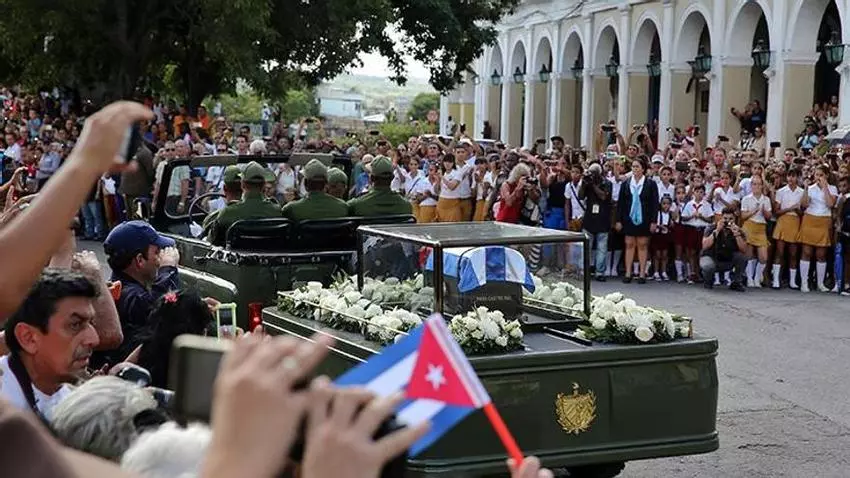
6. The Arrival of Mobile Internet
In 2018 another milestone occurred in modern Cuba. When the world had been surfing the Internet with their cell phones for more than a decade, Cubans were finally able to use that service starting December 6 and, like almost everything, the process was slow. The first lucky ones were those who had a number starting with 52 and 53; then those with

7. The Covid-19 Crisis
At a dizzying speed, the world went from observing atypical pneumonia in China to having to barricade themselves in their homes to avoid the spread of Covid-19. The first pandemic in a century came to light in Cuba on Friday, 28 March 2020, when the first death on the Island and the first local contagion were learned of, after days of surveillance of some tourists who arrived with the virus. A time began that seemed endless: with empty establishments, closed streets, mandatory use of masks and great, very great fear of getting sick on an island full of shortages when the ravages of the disease could be seen in rich countries. It was a very intense information scenario, where the difficulty in reporting was proportional to the need to do so, but in it we discovered outbreaks that the authorities did not want to reveal, cemeteries without space for the dead, and government emergency measures that did not give adequate results. In addition, we had to become experts in the vaccines and validation methods of the WHO, which still has not approved any of the Cuban vaccines that we all received.
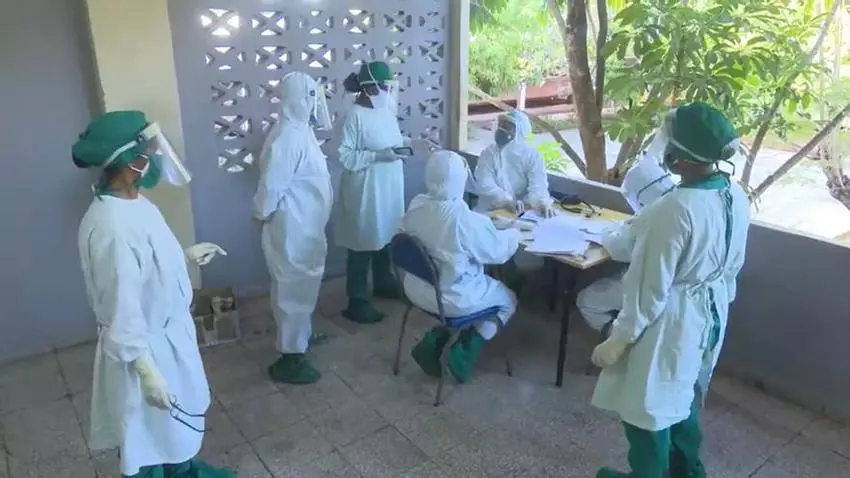
8. The End of the CUC, the “Cuban Convertible Peso”

“The CUC has died and it died young, like Amy Winehouse, Jimi Hendrix or Janis Joplin, just 27 years old,” wrote our collaborator Carla Gloria Colomé, possibly the best epitaph that the currency could ever dream of, after being invented by Fidel Castro in 1994 to raise dollars during the deep crisis of the Special Period. The false currency, as the song says, created two countries or two social classes for the first time since 1959 on the Island. In January 2021, the Ordering Task decreed the death of the CUC in an attempt to recover the preeminence of the national currency. Thousands of Cubans lost their savings in that operation, which also caused a brutal depreciation of the Cuban peso. The US dollar reigns and its price has gone from 24 pesos to around 400 in the last three years.
9. The Awakening of ’11J’ (11 July 2021)
It was a Sunday in July as normal as it was hot, but it became the historic day for Cuban democracy in this 21st century, that of the ’11J Protests’. Our Editorial Team lived the day between the earthquake of videos on social networks and the uproar in the streets, where two of our reporters walked as much as they could alongside the protesters. Shortly after, the complete blackout with internet outages forced us to resort to traditional methods of communication with our colleagues in the field. Emotion and hope were followed by fear and repression. The consequences of those demonstrations continue to accompany us since then, from the trials with long prison sentences, for the families, broken and harassed, and the now mythical motto that became a Grammy award winning song: ‘Patria y Vida’, Homeland and Life.
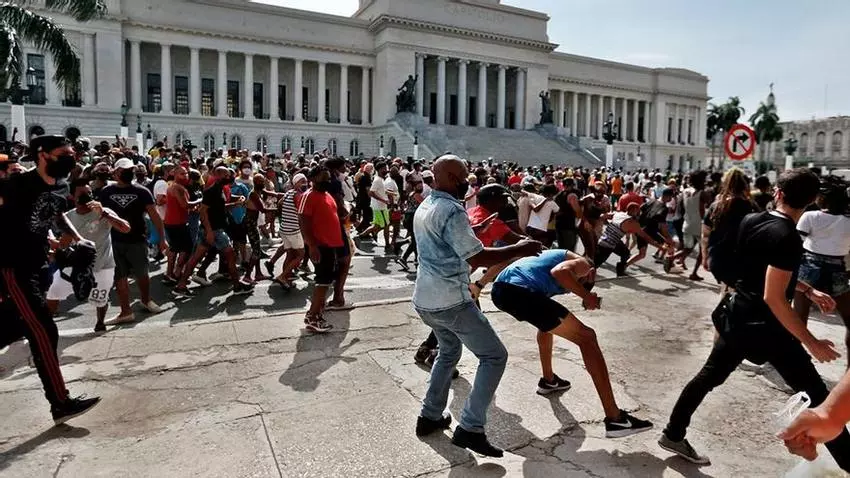
10. The Approval of Equal Marriage
In September 2022, a tense chapter in the recent history of the Díaz-Canel Government closed with the approval of equal marriage. Two souls of society and two souls of the Communist Party, the one that preserved the homophobic reminiscences of early Castroism and the one that needed to adhere to the positions of the international left. The dispute began in 2018, with the constitutional debate, between LGTBI+ organizations and Christian churches, and the Government chose to leave the issue out of the already controversial 2019 Constitution and postpone it for three years with the referendum on the Family Code. The milestone: Cuba has been the first communist country to approve a rule like this, and more than 2,200 couples have benefited to date.
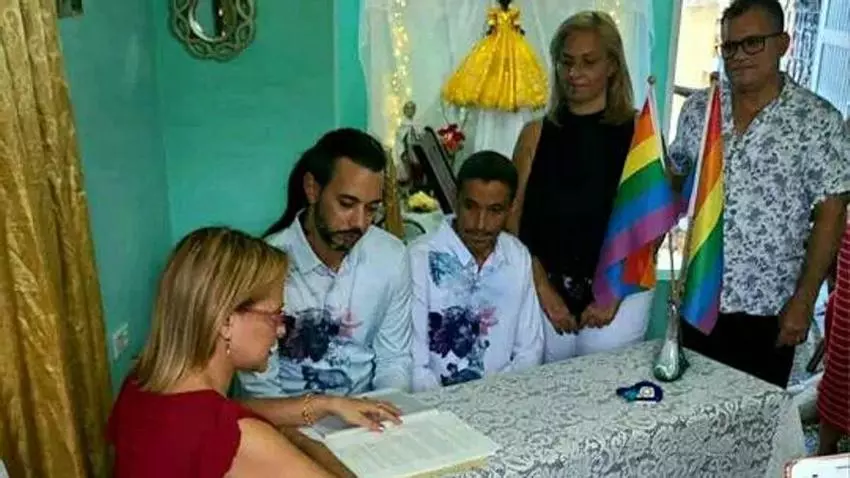
11. Two Tragedies: the Saratoga Hotel in Havana and the Matanzas Supertanker Base
On May 6, 2022, our team in Havana said good morning to our colleagues in Madrid, warning them of something strange. From the 14th floor of the building where our Editorial Office is located, a loud noise had been heard and smoke could be seen. That explosion, allegedly caused by poorly handled gas cylinders next to the central Saratoga hotel, which was getting ready to reopen after being closed for two years due to the pandemic, became one of the biggest tragedies of recent years in Cuba. It was not easy to get to that place, completely militarized and full of emergency equipment, but we did it. And not only that: one by one we located the faces of the 47 deceased, an arduous job for the limited resources of an independent media, which we carried out meticulously with the desire that their families and our readers would read it as a tribute to the victims.
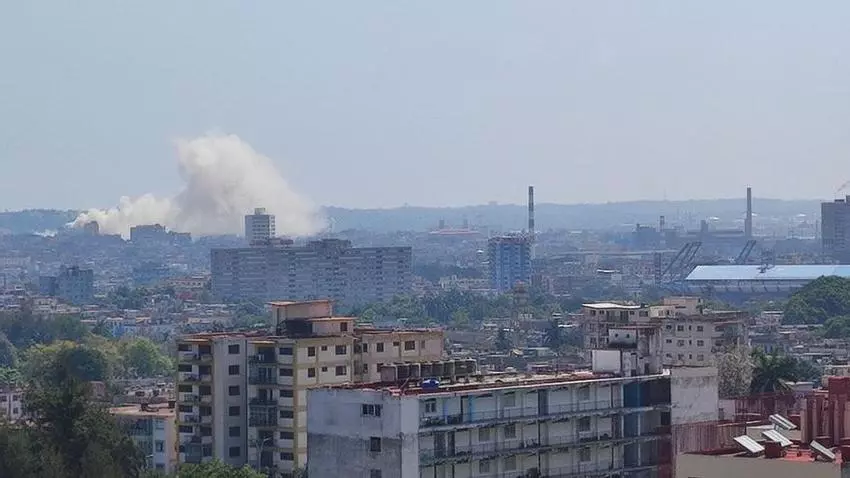
Just three months later, on the night of August 5, the impact of lightning on one of the warehouses at the Matanzas Supertanker Base, which did not have adequate prevention measures, caused the largest industrial accident in the history of the Island. In a reckless decision – it was impossible to extinguish the fire in the way it was intended – 17 firefighters lost their lives and 142 were injured. Several of them were young people undergoing mandatory military service, and not professionals, which raised the indignation of family and friends. At 14ymedio we did the same thing that we did with Saratoga and that the official press did not do: we gave them names and surnames.
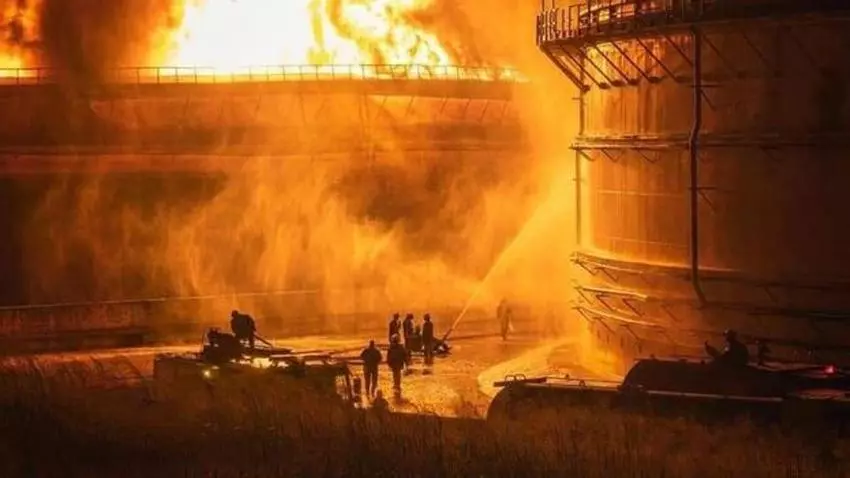
Both events weigh on the news even today: on the one hand, those who lost their homes in the hotel explosion still have nowhere to live, and on the other, the loss of the largest storage warehouses in the country – still in incipient reconstruction – is part of fuel supply problems.
12. Mass Emigration
The eternal theme of Cuba has also been – it could not be otherwise – within this newspaper. The country has lost enormous numbers, yet to be determined, of population in this decade, more than is known from any of its previous migratory crises, including those of the first years of the Revolution, the Mariel Exodus and the Special Period. Likewise, our Editorial Office has been constantly shaken by the departure of journalists and collaborators, a phenomenon that makes us suffer from the departure of each one and the achievements they obtain abroad. Among them, Alejandro Mena Ortiz had the generosity of sharing with us his journey to Miami. The Editorial Team worked intensely, getting emotional with the long audios and raw images of him, to tell, from his own experience, how difficult the path to a better life is for millions of people.
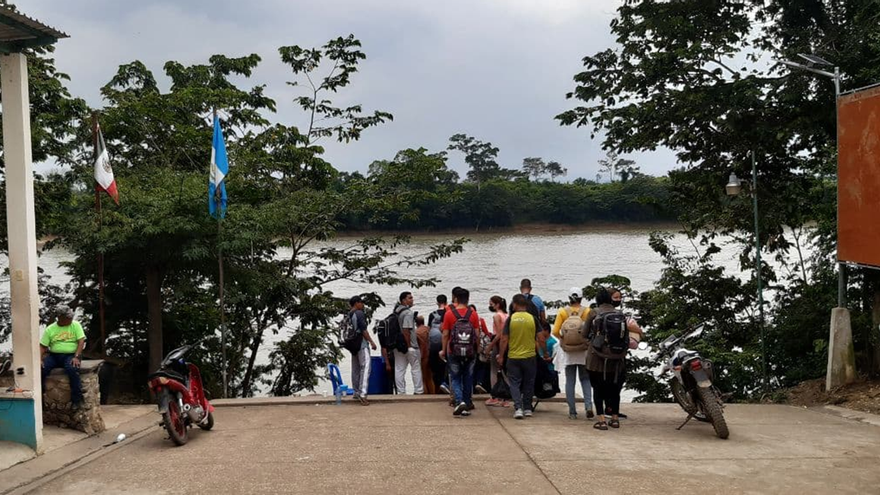
____________
COLLABORATE WITH OUR WORK: The 14ymedio team is committed to practicing serious journalism that reflects Cuba’s reality in all its depth. Thank you for joining us on this long journey. We invite you to continue supporting us by becoming a member of 14ymedio now. Together we can continue transforming journalism in Cuba.
